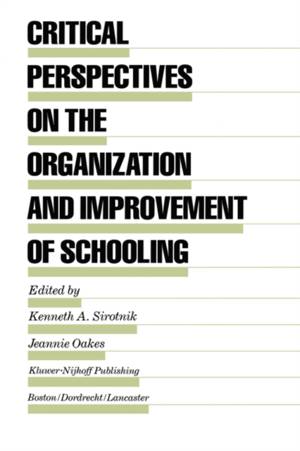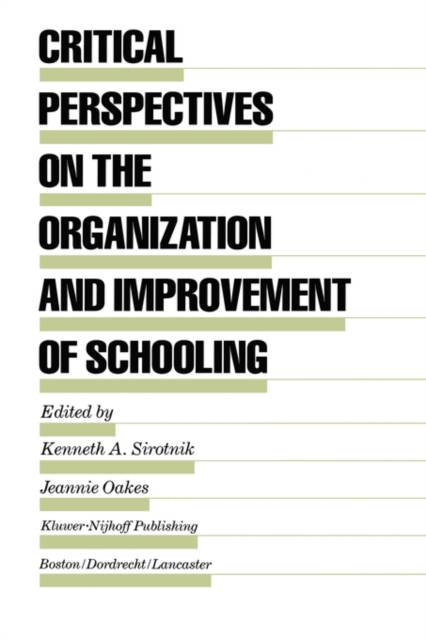
- Retrait gratuit dans votre magasin Club
- 7.000.000 titres dans notre catalogue
- Payer en toute sécurité
- Toujours un magasin près de chez vous
- Retrait gratuit dans votre magasin Club
- 7.000.000 titres dans notre catalogue
- Payer en toute sécurité
- Toujours un magasin près de chez vous
Critical Perspectives on the Organization and Improvement of Schooling
167,95 €
+ 335 points
Description
Major "paradigm shifts"-replacing one "world view" with another- regarding what constitutes appropriate knowledge do not happen over- night. Centuries usually intervene in the process. Even minor shifts- admitting alternative world views into the domain of legitimate knowledge- producing theory and practice-require decades of controversy, especially, it seems to us, in the field of education. It has only been in the last 20 years or so that the educational research community has begun to accept the "scientific" credibility of the qualitative approaches to inquiry such as participant observation, case study, ethnogra- phy, and the like. In fact, these methods, with their long and distinguished philosophical traditions in phenomenology, have really only come into their own within the last decade. The critical perspective on generating and evaluating knowledge and practice-what this book is mostly about-is in many ways a radical depar- ture from both the more traditional quantitative and qualitative perspec- tives. The traditional approaches, in fact, are far more similar to one another than they are to the critical perspective. This is the case, in our view, for one crucial reason: Both the more quantitative, empirical-analytic and qualitative, interpretive traditions share a fundamental epistemological commitment: they both eschew ideology and human interests as explicit components in their paradigms of inquiry. Ideology and human interests, however, are the "bread and butter" of a critical approach to inquiry.
Spécifications
Parties prenantes
- Editeur:
Contenu
- Nombre de pages :
- 256
- Langue:
- Anglais
- Collection :
- Tome:
- n° 13
Caractéristiques
- EAN:
- 9780898382129
- Date de parution :
- 30-09-86
- Format:
- Livre relié
- Format numérique:
- Genaaid
- Dimensions :
- 156 mm x 234 mm
- Poids :
- 562 g






